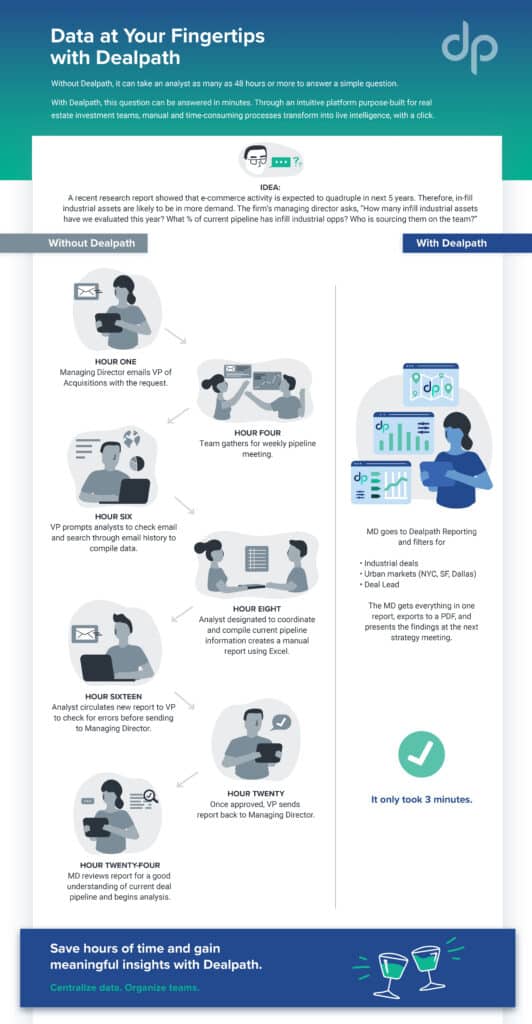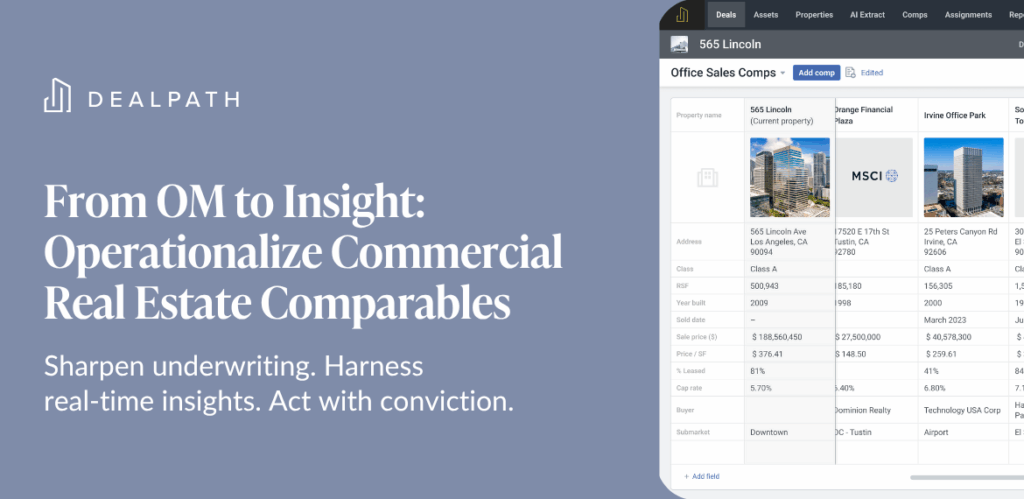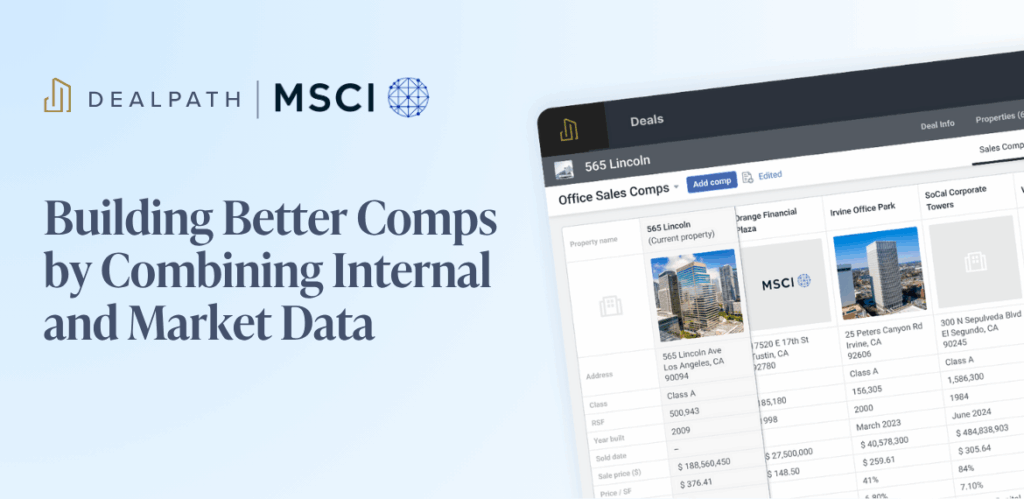Leading real estate investment management teams is no simple task, especially when you depend on team members for reports with valuable market intelligence. When your data is fragmented across siloed systems, obtaining the information you need to make decisions about investment strategies, forecast transactions, and report to stakeholders can be a lengthy process–which may not culminate with a result you’re confident in. By centralizing all deals and data, Dealpath has changed how everyone, from Managing Directors to Analysts, can collaborate, analyze data, report and accomplish other important deal work.
Without Dealpath, one simple request can take an entire team a full day to answer. With Dealpath, you can generate a report to answer almost any question based on your data in just a few clicks. Below, we outline what a day in the life of a Managing Director might entail with and without Dealpath.
The Question: How Many In-Fill Industrial Assets Have We Evaluated This Year?
Let’s say that a Managing Director wants to proactively tailor the firm’s investment strategy to ongoing e-commerce growth, and the resulting demand for infill industrial assets. As a first step, the MD wants to see how the firm’s pipeline and dead deals align with this trend.
The MD emails the VP of Acquisitions to learn how aggressively the team has sourced infill industrial deals, eagerly awaiting the answer in preparation for the upcoming board meeting.

Without Dealpath: A Collaborative, Day-Long Search & Verification Process
Lacking a cloud-based tool that can easily answer these questions, teams must exert extensive time and energy to find them.
- First, the Managing Director must email the VP of Acquisitions to request the report.
- As part of their standard weekly process, the acquisitions team gathers to review deal updates during a weekly pipeline meeting.
- After the meeting, the VP requests that analysts search for any dead or active pipeline deals that meet this criteria in the pipeline tracker spreadsheet and their inboxes.
- As analysts gather relevant data, they send it to one team member designated to compile a report on Excel.
- Hours later, that analyst confirms that the team has compiled all of the relevant information. They then submit it to the VP.
- Before submitting the report, the VP requests verification on a few deals. Analysts must now verify that the data is accurate and up-to-date, with confirmation from other team members.
- Once the analysts have verified all questionable deals, the VP submits the report to the MD.
- Only now can the MD review the report, which might only contain raw data, to analyze and synthesize insights ahead of the upcoming board meeting.
With Dealpath: A Few Simple Clicks
Dealpath is the single source of truth that teams rely on for efficient, reliable data. With all of the firm’s pipeline and dead deal data in Dealpath, the MD can build a report with relevant deals in just a few clicks.
- The MD logs into Dealpath and clicks on the reporting tool.
- Next, the MD filters for industrial deals.
- Then, the MD filters further by selecting only urban markets, including NYC, SF, and Dallas.
- Additionally, the MD wants to see who owned each deal. They choose to display the deal lead for each deal in the report.
- Finally, the Managing Director exports the report to a PDF.
Using Dealpath, the MD can find the answers they need to prepare for critical meetings much faster than they would by requesting data.
Turn Your Data Into Your Competitive Advantage With Dealpath
The faster you can identify trends to make the right investment decisions, the sooner your team can reject weak deals and focus on the right ones.
By managing deals in Dealpath, you can leverage powerful, filter-based analytics to tap into your data’s full potential:
- Explore trends across markets, asset classes, and any other data points you choose to track
- Compare pipeline deals against historical data, without data hygiene concerns
- Audit operational deal lifecycle and progression metrics to identify bottlenecks and adjust your processes or investment strategy accordingly
Schedule a Demo to Learn More
To learn more about how your firm can systematically make data-driven investment decisions at scale, schedule a demo.
Schedule A Demo



